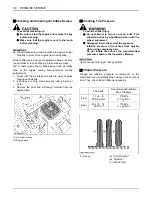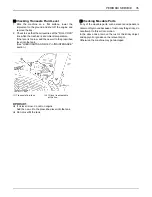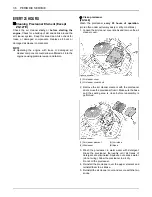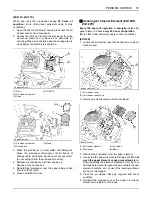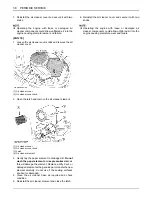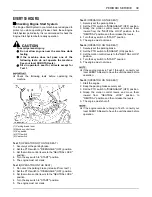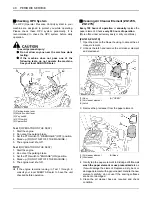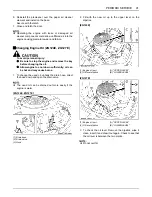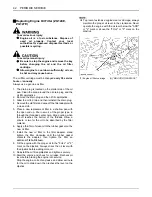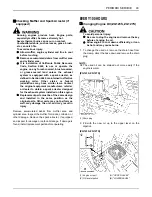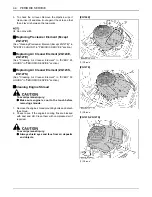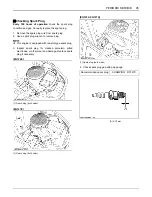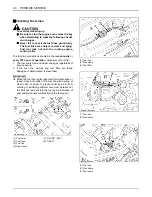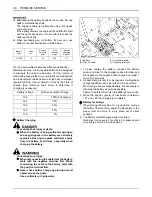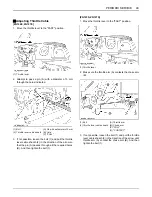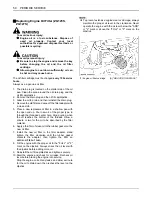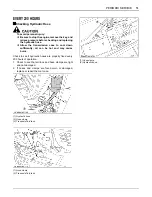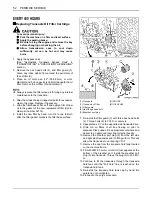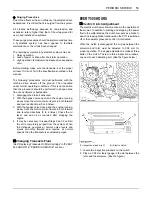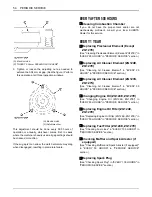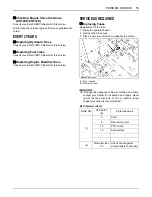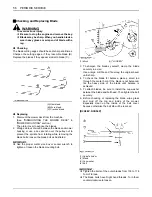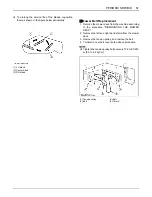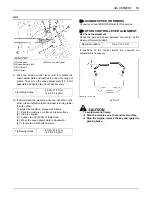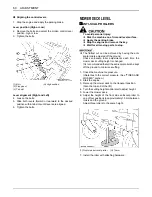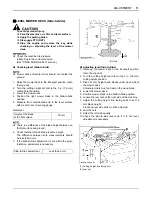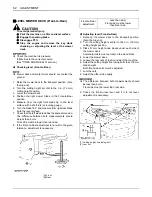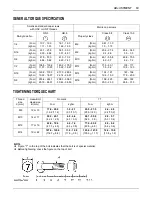
PERIODIC SERVICE
48
A
Mishandling the battery shortens the service life and
adds to maintenance costs.
The original battery is maintenance free, but needs
some servicing.
If the battery is weak, the engine will be difficult to start
and the lights will be dim. It is important to check the
battery periodically.
A
When exchanging an old battery for new one, use
battery of equal specification in table below.
(For non-accessible maintenance-free type batteries.)
Maintenance-free, non-accessible batteries are designed
to eliminate the need to add water. Yet the volume of
electrolyte above plates may eventually become depleted
due to abnormal conditions such as high heat or improper
regulator setting. Use a voltmeter to check the state of
charge. (See reference chart below to determine if
charging is necessary.)
C
Battery Charging
To avoid serious injury or death:
A
When the battery is being activated, hydrogen
and oxygen gases in the battery are extremely
explosive. Keep open sparks and flames away
from the battery at all times, especially when
charging the battery.
To avoid serious injury:
A
When disconnecting the cable from the battery,
start with the negative terminal first. When
connecting the cable to the battery, start with
the positive terminal first.
A
Never check battery charge by placing a metal
object across the posts.
Use a voltmeter or hydrometer.
1. To slow charge the battery, connect the battery
positive terminal to the charger positive terminal and
the negative to the negative, then charge for at least 1
hour at 6.5 amperes.
2. A boost charge is only for emergencies. It will partially
charge the battery at a high rate and in a short time.
When using a boost-charged battery, it is necessary to
recharge the battery as early as possible.
Failure to do this will shorten the battery's service life.
3. When the specific gravity of electrolyte is between
1.27 and 1.29 the charging is completed.
C
Battery for storage
1. When storing the machine for a long period, remove
the battery from machine, adjust the electrolyte to the
proper level and store in a dry place out of direct
sunlight.
2. The battery self-discharges while it is stored.
Recharge it once every 3 months in hot seasons and
once every 6 months in cold seasons.
Battery
Type
Volts
(V)
Reserve
Capacity
(min)
Cold
Cranking
Amps
Normal
Charging
Rate(A)
U1-300
12
45
300
6.5
Battery voltage
Reference state of charge
12.6
100%(Full charge)
12.4
75%
12.2
50%
12.0
25%
11.8
0%
(1) Battery
(2) Ground cable
(+): Positive terminal
(-): Negative terminal

